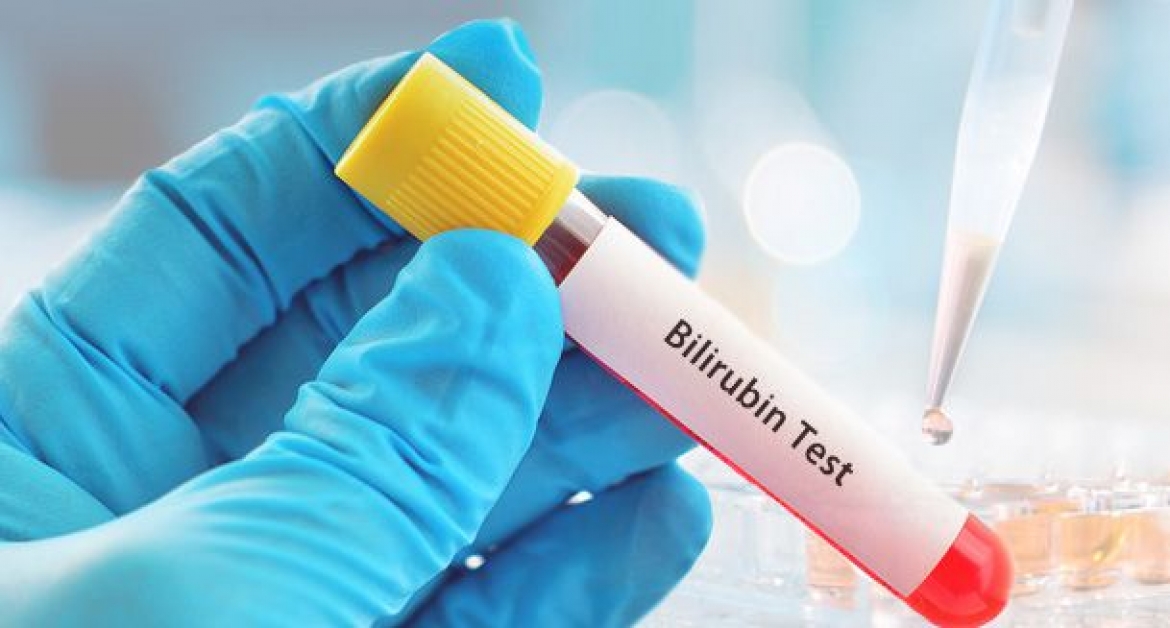Serum Bilirubin Total Normal Range
The normal range for serum bilirubin total is typically between 0.2 to 1.2 mg/dL. Serum bilirubin total normal range is crucial in assessing liver function and diagnosing conditions like jaundice.
Serum Bilirubin Total Normal Range Understanding the acceptable levels of serum bilirubin total is essential for healthcare professionals to interpret lab results accurately. Maintaining bilirubin levels within the normal range is vital for overall health and well-being. Any deviations from the normal range may indicate underlying liver or bile duct issues that require further investigation.
By staying within the specified range, individuals can ensure optimal liver function and overall health.

Introduction To Serum Bilirubin
Serum bilirubin is a crucial component of blood that plays a vital role in the body’s metabolic processes. Understanding the normal range of serum bilirubin is essential for monitoring and maintaining overall health. Let’s delve into the significance of serum bilirubin and why it is important to monitor its levels regularly.
Role In The Body
Serum bilirubin is a yellowish pigment derived from the breakdown of red blood cells. It acts as an antioxidant, protecting cells from damage caused by free radicals. Additionally, it plays a key role in the metabolism of fats and aids in the digestion of food in the intestines.
Why Monitoring Is Essential
Regular monitoring of serum bilirubin levels is crucial for detecting and managing various liver and blood disorders. Abnormal levels of serum bilirubin can indicate conditions such as jaundice, hemolytic anemia, and liver diseases. Early detection through monitoring can lead to timely interventions and better health outcomes.
Normal Ranges Of Serum Bilirubin
In the human body, serum bilirubin plays a crucial role in the breakdown of red blood cells and liver function.
Adults And Children Differences
The normal range of serum bilirubin differs between adults and children due to their varying metabolic rates and liver functions.
Factors Influencing Levels
Several factors can influence serum bilirubin levels, such as diet, medication, liver health, and underlying medical conditions.
Significance Of Bilirubin In Diagnostics
Serum bilirubin is a critical component in the diagnosis of various liver and hematological disorders. It is an essential indicator of liver function and plays a crucial role in identifying and monitoring liver diseases and hemolytic disorders. Understanding the significance of bilirubin in diagnostics is vital for healthcare professionals to interpret test results accurately and provide appropriate patient care.
Liver Function Indicator
Serum bilirubin serves as a significant indicator of liver function. When the liver is unable to process bilirubin efficiently, it can lead to an increase in the levels of total bilirubin in the blood. Monitoring bilirubin levels helps in evaluating liver health and identifying potential liver diseases such as hepatitis, cirrhosis, and other hepatic disorders.
Detecting Diseases
Elevated levels of serum bilirubin aid in detecting various diseases, including jaundice, hemolytic anemia, and gallbladder diseases. By analyzing the levels of bilirubin, healthcare providers can assess the severity of the condition and determine the appropriate course of treatment for patients.
Causes Of Abnormal Bilirubin Levels
Abnormal bilirubin levels can be caused by various factors, impacting the total serum bilirubin range. These include liver conditions such as hepatitis or cirrhosis, hemolytic anemias, and blockage of the bile ducts. Understanding the underlying causes is crucial in determining appropriate treatment for abnormal bilirubin levels.
Causes of Abnormal Bilirubin Levels: The normal range for serum bilirubin total is between 0.3 to 1.9 mg/dL. Any deviation from this range is considered abnormal and indicates an underlying health condition. Abnormal bilirubin levels can be caused by a variety of factors, including liver diseases, hemolytic disorders, and other medical conditions. Liver Diseases: Liver diseases such as hepatitis, cirrhosis, and liver cancer can cause abnormal bilirubin levels. These conditions can damage the liver, leading to impaired bilirubin metabolism and increased bilirubin levels in the blood. In severe cases, liver failure can occur, causing jaundice and other serious complications. Hemolytic Disorders: Hemolytic disorders such as sickle cell anemia, thalassemia, and autoimmune hemolytic anemia can cause abnormal bilirubin levels. These conditions cause premature destruction of red blood cells, leading to increased bilirubin production and accumulation in the blood. This can result in jaundice and other symptoms. Other Medical Conditions: Other medical conditions such as gallstones, pancreatitis, and certain medications can also cause abnormal bilirubin levels. Gallstones can block the bile ducts, leading to impaired bilirubin metabolism and increased bilirubin levels in the blood. Pancreatitis can also cause bilirubin levels to rise due to inflammation and damage to the pancreas. Certain medications such as antibiotics and chemotherapy drugs can also cause elevated bilirubin levels. In conclusion, abnormal bilirubin levels can be caused by a variety of factors, including liver diseases, hemolytic disorders, and other medical conditions. It is important to identify the underlying cause of abnormal bilirubin levels in order to receive appropriate treatment.
Symptoms Of Altered Bilirubin Levels
Elevated or decreased serum bilirubin levels can lead to symptoms like yellowing of the skin and eyes, dark urine, and fatigue. It is essential to be aware of the normal total bilirubin range for early detection and proper management of liver health.
Symptoms of Altered Bilirubin Levels: Bilirubin is a yellow pigment produced by the liver during the breakdown of red blood cells. The total bilirubin test measures the amount of bilirubin in the blood. The normal range of serum bilirubin total is 0.3 to 1.9 mg/dL. Altered levels of bilirubin can indicate liver or gallbladder disease. Understanding the symptoms of altered bilirubin levels can help individuals identify potential health issues early on. Below are some of the symptoms:
Jaundice
Jaundice is a condition in which the skin and whites of the eyes turn yellow due to a buildup of bilirubin in the blood. It is often the first and most noticeable symptom of elevated bilirubin levels. Jaundice can occur in both adults and newborns. Other symptoms that may accompany jaundice include fatigue, weakness, and itching.
Other Visible Signs
In addition to jaundice, other visible signs of altered bilirubin levels include dark urine and pale stools. Dark urine can indicate that there is excess bilirubin in the blood, while pale stools may suggest that the bile flow from the liver is obstructed. Other symptoms that may be present include abdominal pain, nausea, and vomiting. In conclusion, being aware of the symptoms of altered bilirubin levels can help individuals identify potential health issues early on. If you experience any of the symptoms mentioned above, it is important to see a doctor for proper diagnosis and treatment.

Testing For Bilirubin
Discover the normal range for serum bilirubin total through bilirubin testing. Ensure levels fall within the standard parameters for optimal health. Regular testing can monitor and maintain proper bilirubin levels in the body.
When it comes to assessing liver function, testing for bilirubin is a crucial component. Bilirubin is a yellowish pigment produced by the breakdown of red blood cells and is processed by the liver. It plays a key role in evaluating liver and gallbladder health. Understanding the normal range for serum bilirubin total and interpreting the results of the test is essential for monitoring liver function and diagnosing potential health issues.
Blood Tests
Blood tests are the primary method used to measure serum bilirubin levels. The most common test is the total bilirubin test, which measures the combined levels of unconjugated (indirect) and conjugated (direct) bilirubin in the bloodstream. These tests are typically ordered as part of a liver function panel or as a standalone test to investigate jaundice or other liver-related conditions.
Understanding Results
Interpreting the results of serum bilirubin total tests is crucial for assessing liver health. The normal range for serum bilirubin total is typically between 0.3 and 1.9 mg/dL. Elevated levels may indicate liver disease, bile duct obstruction, or other underlying health issues, while low levels are less common but can also be indicative of certain health conditions. It’s important to discuss the results with a healthcare professional to determine the appropriate course of action based on the specific context of the individual’s health.
Managing Abnormal Bilirubin
To manage abnormal bilirubin levels, it is crucial to understand the normal range of serum bilirubin total. Monitoring bilirubin within the standard levels helps in identifying and addressing any underlying health issues effectively. Regular check-ups and consultation with healthcare professionals are essential for maintaining optimal bilirubin levels.
Abnormal bilirubin levels can indicate underlying health issues. It is crucial to manage these levels effectively to prevent complications. Here are some strategies to help manage abnormal bilirubin:
Dietary Recommendations
- Consume a diet rich in fiber to support healthy digestion.
- Include foods high in antioxidants such as fruits and vegetables.
- Limit intake of processed foods and saturated fats.
Medical Treatments
- Medical procedures such as phototherapy may be recommended.
- Medications like ursodeoxycholic acid can help manage bilirubin levels.
- In severe cases, liver transplant may be necessary.
Preventative Measures And Lifestyle
When it comes to maintaining a healthy total serum bilirubin level, there are certain preventative measures and lifestyle choices that can play a crucial role. By incorporating these practices into your daily routine, you can help support liver health and ensure that your bilirubin levels remain within the normal range.
Regular Screenings
Regular screenings for total serum bilirubin levels are essential for early detection of any potential issues. It is recommended to schedule routine check-ups with your healthcare provider to monitor your bilirubin levels and address any concerns promptly.
Healthy Liver Tips
Adopting healthy lifestyle habits can significantly contribute to maintaining normal total serum bilirubin levels. Here are some tips to support liver health:
- Consume a balanced diet rich in fruits, vegetables, and lean proteins
- Avoid excessive alcohol consumption
- Stay hydrated by drinking an adequate amount of water daily
- Engage in regular physical activity to support overall well-being
- Avoid exposure to toxins and pollutants as much as possible

Frequently Asked Questions
What If Serum Total Bilirubin Is High?
High serum total bilirubin levels may indicate liver or bile duct issues that require further evaluation by a healthcare provider.
What Is A High Level For Bilirubin?
A high level for bilirubin is typically considered to be above 1. 2 milligrams per deciliter (mg/dL) in adults. High bilirubin levels may indicate liver or bile duct issues and should be evaluated by a healthcare professional.
What Is The Normal Range Of Bilirubin In Serum?
The normal range of bilirubin in serum is 0. 3 to 1. 2 milligrams per deciliter (mg/dL).
What Is An Abnormal Serum Bilirubin Level?
An abnormal serum bilirubin level indicates high or low levels of this liver-produced pigment.
Conclusion
Understanding the normal range of serum bilirubin total is crucial for monitoring health. By maintaining levels within the standard parameters, potential liver issues can be detected early. Always consult with a healthcare provider for personalized guidance. Stay informed, stay healthy.






